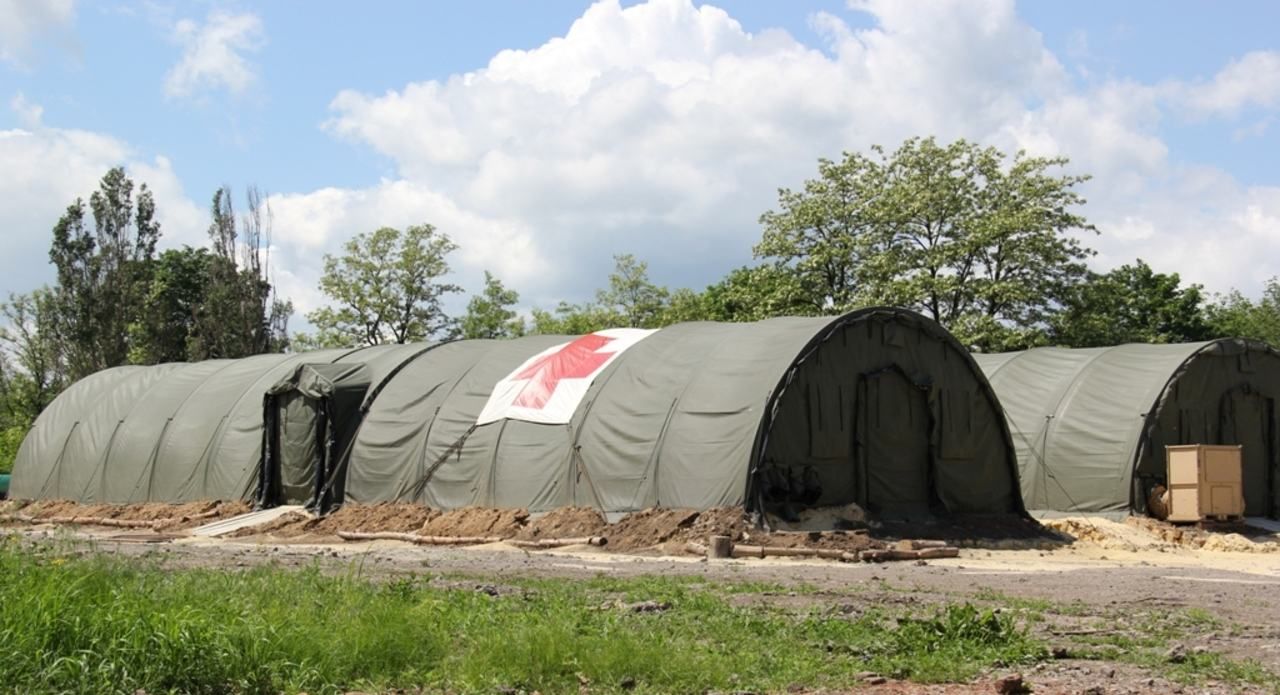Bomb shelters, drug reserves and drills: the Baltic states are preparing for war with Russia
16 June 20:27
The countries on NATO’s eastern flank – Lithuania, Latvia, Estonia and Poland – are actively strengthening their healthcare systems amid military threats from Russia. These measures are a direct response to Russia’s invasion of Ukraine and should ensure the sustainability of ambulances, hospitals, and other parts of the system even in the face of massive attacks and an influx of wounded, "Komersant Ukrainian" reports, citing Politico.
A series of training exercises involving ambulances, rescuers and the military took place in Lithuania
One such event was recently organized in Jonava, a city of about 30,000 people in the center of Lithuania. They used a massive training scenario to simulate an explosion at the stadium of the Lietavos school. When the first paramedics arrived on the scene, the whole area was filled with the sound of sirens, people were lying on the ground, screaming, and the city was covered in smoke.
Not all paramedics are trained for this kind of task. Martina Veronika Noreikaite, who had been working in an ambulance for only 3 years, shared her memories:
“When everything around you is turned upside down, you lose your orientation and don’t know where to start,” she said.
Her experience formed the basis of a massive training scenario aimed at coordinating the work of ambulances, police, rescuers and other services.
The need for such training has increased since the Russian invasion of Ukraine. The authorities are increasingly aware of the threat of war in other European countries, especially on the border with Russia and Belarus.
Preparations include not only training scenarios, but also creating a reserve and strengthening infrastructure
The approach of other Baltic countries and Poland to the possible danger is not surprising. In Latvia, using the COVID experience, they have formed a three-month supply of medicines and other critical resources. Estonia has allocated 25 million euros to create a reserve of medicines, bandaging equipment, and other necessary materials.
Hospitals are also preparing additional space and equipping basements to work during rocket and bomb attacks and other emergencies. For example, the Santaros University Hospital in Vilnius, just 50 kilometers from the border with Belarus, is setting up shelters and helicopter platforms to transport the wounded as quickly as possible. Mobile field hospitals are also being opened in Estonia to make up for the lack of inpatient beds.
Analysts specializing in military threats note that the average number of patient beds in the Baltic States is about 11.5 per 100,000 inhabitants. During a war, this figure will need to be increased several times. The training exercises also take into account the shortage of qualified workers: there may simply not be enough staff for all patients.
Stocks of medicines and equipment are concentrated on the border with other EU countries
The approach of other EU countries to creating joint reserves is not surprising. Such measures will allow concentrating medicines and bandages on the border with other EU members, which will reduce the threat of complete depletion of local stocks.
Read also: After the war in Ukraine, Russia may attack NATO countries: what territories are in question
Human factor and psychological resilience
Not everything depends on equipment and medicines. People are the most important resource of any country’s medical system. During the training scenarios and the experience of the war in Ukraine, it became clear how much this factor affects the system’s resilience.
For example, the Baltic countries have already experienced certain problems. A quarter of Lithuanian healthcare workers are ready to leave the country in case of danger, while the rest feel anxious and lack information. In such circumstances, the state’s task is to provide psychological support to the staff, develop algorithms and increase stress resistance.
Therefore, during training exercises, the staff undergoes not only practice, but also psychological sessions, which increases stress resistance and allows them to concentrate on tasks even under extreme stress.
The region is preparing for a scenario where the battlefield may shift to its territory
According to Ragnar Vaikemets, an expert from Estonia, the question is not “if Russia will invade” but “when Russia will invade.” The region is concentrating reserves, conducting training sessions, and implementing algorithms in all areas: prompt assistance to the wounded, psychological stability of personnel, mobility, and availability of equipment.
Polish Foreign Minister Katarzyna Kacperczyk agrees with this. She says that security issues should also be taken into account when reforming the healthcare system.
Читайте нас у Telegram: головні новини коротко









